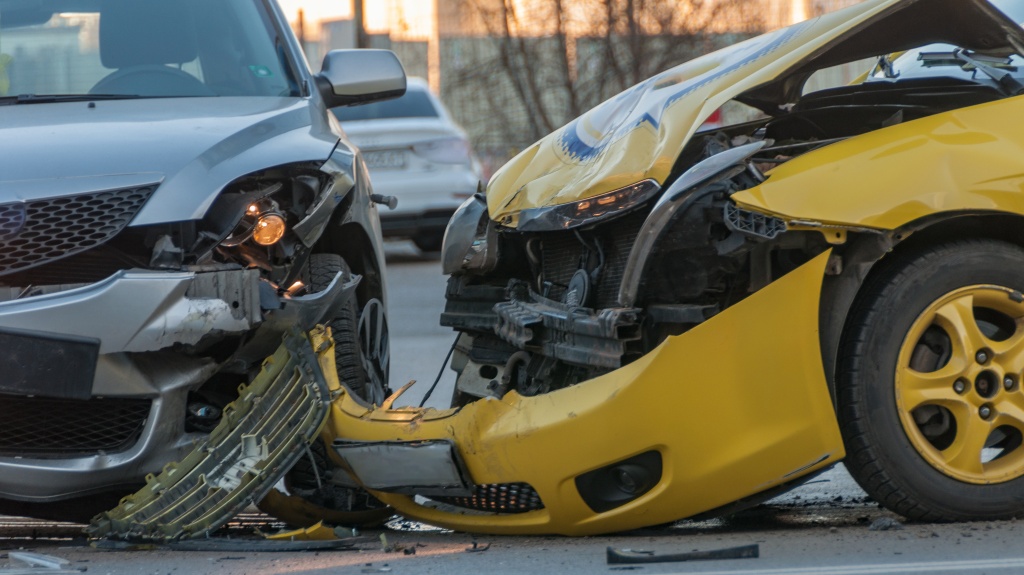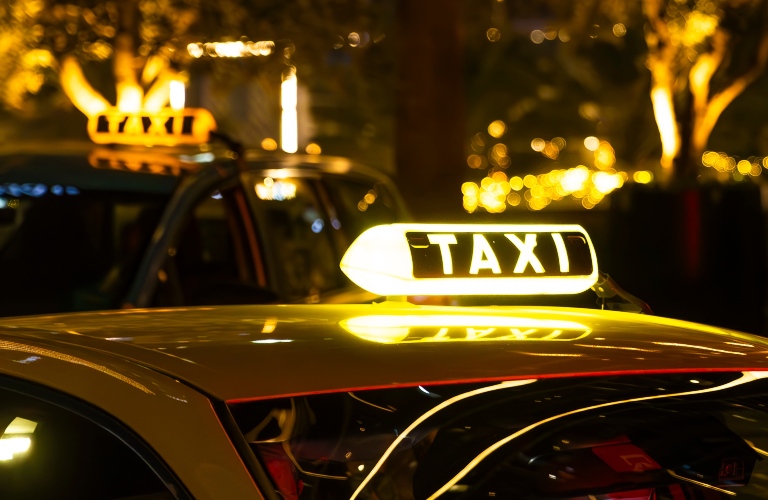
Although rideshare companies have become a popular method of transportation in recent years, taxi services still provide a transportation option for many people. However, rideshare vehicles and taxis have just as significant a risk of getting into accidents as other vehicles on the road. But do rideshare and taxi accidents in Illinois have legal differences?
Insurance Coverage Differences
In Illinois, rideshare companies (also called transportation network companies) and taxi companies have different insurance coverage requirements. Coverage requirements for both types of companies far exceed the minimum insurance requirements applicable to personal vehicles. Taxi companies must submit a certificate of insurance for each vehicle in their fleet showing coverage that meets the minimum policy limits for split requirements or combined single limit. The minimum split coverage limits require $250,000 in bodily injury/death liability coverage and $50,000 in property damage liability coverage; the minimum combined single limit requires $300,000 of coverage.
Under Illinois law, rideshare companies must provide minimum insurance coverage limits that can change depending on the rideshare driver’s activity during an accident. When a rideshare driver has logged into the company’s network but does not have an active ride or ride request, their insurance must provide at least $50,000 per person, $100,000 per accident of bodily injury/death liability coverage, and $25,000 per accident of property damage liability coverage. However, once a rideshare driver accepts a ride request, or if they have a rideshare passenger in the vehicle, their insurance must provide at least $1 million in combined liability coverage. Once a rideshare driver logs off the company’s network, their personal auto insurance coverage applies.
Liability Considerations
Different liability considerations can apply in rideshare versus taxi accidents in Illinois. Taxi companies may also bear liability for taxi accidents if they employ an at-fault taxi driver. An employer-employee relationship between a taxi driver and a company can subject the taxi company to vicarious liability for the driver’s negligence. Conversely, rideshare drivers drive for rideshare companies as independent contractors, meaning rideshare companies cannot bear vicarious liability for a driver’s negligent operation of their vehicle. However, rideshare companies may bear direct negligence for an accident if they negligently retain or supervise drivers, such as by failing to conduct adequate background checks or keeping a driver on the platform despite knowing facts that indicate the driver poses a substantial risk of causing an accident.

Filing a Claim After an Accident
Filing claims after rideshare or taxi accidents may involve different processes. For rideshare accidents, crash victims may file claims or report accidents to the rideshare company through the company’s mobile application or on their website. Conversely, in taxi accidents, accident victims may file claims with the taxi company’s insurer. Unfortunately, involving rideshare companies in the claims process can slow down resolving accident claims.
Passenger and Third-Party Claims
Passengers in rideshare and taxi accidents may have similar legal rights for third-party claims, which arise when another vehicle hits the passenger’s rideshare or taxi. When a driver negligently collides with a taxi or rideshare vehicle, passengers in the taxi or rideshare can sue the third-party drivers for injuries sustained in the crash. Furthermore, if the rideshare or taxi driver contributed to the accident, an accident claim may involve apportioning fault between the taxi/rideshare driver and the third-party driver.
Contact a Rideshare/Taxi Accident Lawyer Today
When you’ve suffered injuries in an accident in a rideshare vehicle or taxi in Illinois, you need experienced legal counsel to help you navigate the claims process. Contact Saperstein Law Group today for a free, no-obligation consultation with a car accident attorney to discuss your legal options for seeking compensation for your medical bills, lost income, and pain and suffering after a rideshare or taxi accident.
